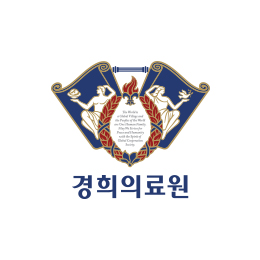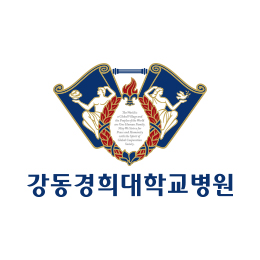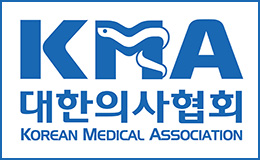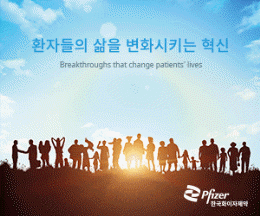Joint Statement of
The Tenth China-Japan-Korea
Tripartite Health Ministers' Meeting (THMM)
November 11-12, 2017
Ji'nan, China We, the Health Ministers of China, Japan and Korea met in Ji'nan, China, on November 12th, 2017, reviewed the achievements made since the first Tripartite Health Ministers’ Meetings and discussed the future framework of cooperation. Items on the agenda of this meeting included the prevention and control of emerging and re-emerging infectious diseases, healthy aging, the prevention and control of non-communicable diseases, the application of information and communication technologies in the fields of health and traditional medicine. 1. Prevention and control of emerging and re-emerging infectious diseases
In recent years, the emergence throughout the world of acute infectious diseases and major public health emergencies has been posing serious threats and challenges to the health and lives of our peoples, and to the global public health security. From the end of 2016 to 2017, human infection with avian influenza A(H7N9) occurred in China, and severe outbreaks of avian influenza A(H5N6) and A(H5N8) occurred in Japan and Korea. Given the geographical proximity of the three countries, and the frequent movement of people and goods, the need for stronger collaboration at the regional level to jointly address infectious disease epidemics is extremely pressing.
Over the past decade, under the framework of the tripartite cooperation documents of the Memorandum of Cooperation among the Ministry of Health, Labour and Welfare of Japan, the Ministry of Health and Welfare of the Republic of Korea and the National Health and Family Planning Commission of the People's Republic of China on a Joint Response against Pandemic Influenza and Emerging/Re-emerging Infectious Diseases of Common Concern and the Joint Action Plan on Preparedness and Response against Pandemic Influenza and Emerging/Re-emerging Infectious Diseases of Common Concern, our three countries have successfully responded to the Middle East respiratory syndrome and other public health emergencies, not only effectively safeguarding the public health of our three countries, but also making a significant contribution to global public health security.
We congratulate the successful convention of the 11th China-Japan-Korea Infectious Disease Prevention and Control Forum held in Seoul, Korea, on November 7th, 2017. Under this mechanism, experts from China, Japan and Korea held in-depth discussions on the preparedness and response to the prevention and control of avian influenza A (H7N9), severe fever with thrombocytopenia syndrome (SFTS), dengue fever and other emerging and re-emerging infectious diseases, and explored possible trilateral collaboration in sharing influenza information.
We will closely cooperate with the WHO Regional Office for the Western Pacific as well as Asia Pacific countries including through the implementation of the “Asia-Pacific Strategy For Emerging Diseases And Public Health Emergencies” (APSED III) and relevant regional and national disease prevention and control strategies and programs for further strengthening prevention and preparedness against health emergencies in the region, including their IHR core capacities. We will also continue to promote timely tripartite sharing of information, closely monitor threats to the public health in this region, and jointly improve the core capability to respond to all kinds of threats posed by outbreaks of acute infectious diseases. 2. Healthy aging
We note that the number of people over the age of 65 has increased significantly, and that the three governments’ spending on medical services and long-term care has risen sharply. Since 2010, the Trilateral Policy Dialogue on Aging has become a useful platform for our three countries to share healthy aging policies, experiences and best practices. We welcome the Trilateral Policy Dialogue on Aging to be held in Jinan on November 12-13th,2017.
Japan and Korea are among the foremost countries in the world with a rising aging population, and have responded early to the aging of the population by taking a series of effective measures. We appreciate the active measures taken by the health sectors of Japan and Korea, including policies that encourage elderly citizens to continue to work, those that promote development of elderly service industry, and those that actively implement long-term care insurance systems. Therefore, we recognize their achievements in satisfying needs in the elderly medical and long-term care services. At the same time, with 150 million people over 65 years old, China has the largest aged population in the world that has an ever increasing demand for quality health services. We are glad to see that China is continuing to explore a healthy aging path suited to its national conditions, and has made many encouraging steps in the areas of medical and nursing care integration, long-term care system construction, hospice care and training of nursing professionals. We will continue to utilize this meeting to promote exchanges of health policies and to look for ways forward in tripartite cooperation on issues caused by changes in demographic structure, thus paving the way for stimulating the dynamism of our research network. 3. Prevention and control of non-communicable diseases (NCDs)
NCD is a serious threat to human health. It is a main contributor to population mortality and a health challenge currently being faced in our three countries. Since the Fifth Tripartite Health Ministers’ Meeting, NCD has become an important area of cooperation for our three countries. At present, our three countries have made the reduction of premature mortality caused by major chronic diseases, which was proposed by the 2030 Agenda for Sustainable Development and the WHO Global Integrated Monitoring Framework for Chronic Disease Prevention and Control, as an important goal of our national health development programs. Our common objectives are to further improve population health, life expectancy, and to control the increasing NCD burden by adopting such policy.
China, Japan and Korea have the responsibility to push forward the formation of joint efforts to promote the health development of the region. We acknowledge that the NCD reduction including that of cancer requires a comprehensive approach, emphasizing on primary and secondary prevention, focused on promoting healthy lifestyles for the public, and actively promoting the health service industry, telemedicine and integration of medical services and nursing care. We should continue to promote early screening, early diagnosis and early treatment for major NCDs, and strengthen information sharing and technical exchanges to ensure the effective prevention and control of the occurrence and development of NCDs in the population of our region. 4. The application of information and communication technology (ICT) in the field of health
As global information and big data applications leading a new phase of innovation, integration and development, the attention and demand by people have reached an unprecedented level. With the computerization of the whole society, the revolutionary impact of information technology on health care becomes obvious. New health care development models and creative medical and health services are constantly emerging, bringing about profound changes to the health care model and the improvement of health and medical service efficiency and quality, increasing resources supply, and cultivating new industries and growth points to continuously meet the health needs of the public in a multi-level and diversified way.
Our three countries are responding to global trends of information and communications technology, striving to apply ICT as well as information strategy and big data technology in health to promote the transformation of the traditional service mode of treatment-centric to health-centric in the new service model, and striving to provide an integrated health care service system which is equally accessible to all people. We discussed strategies for the utilization of ICT and big data for disease control and health promotion work in our respective countries. In the next step, we will further share best practices when agreed by the three countries to promote the application of ICT and big data in the health sector. 5. Traditional medicine
Traditional medicine plays an important role in the health system of our three countries. Since 1995, China and Korea have held the China-Korea Joint Cooperation Committee Meeting for Traditional Medicine and have carried out pragmatic cooperation under the framework of the conference. Our three countries have made positive progress in implementing the WHO resolution on Traditional Medicine and the Traditional Medicine Strategy (2014-2023). We will continue to strengthen exchanges and cooperation in the implementation of the WHO resolutions, the promotion of traditional medicine into the 11th edition of the International Classification of Diseases (ICD 11), and the ISO/TC249 to develop and promote traditional medical standards. The health and traditional medicine management departments of our three countries will jointly support active exchanges and pragmatic cooperation among us in the field of traditional medicine. The specific areas of cooperation may include education, scientific research, cultural exchanges, and partnerships by industry or healthcare institutions. 6. Next meeting
We reaffirm our consensus that the Tripartite Health Ministers’ Meeting will be held on a regular basis, and that all relevant activities will be conducted on the basis of equality, reciprocity and mutual benefit, and we will coordinate the activities and objectives of other international health institutions, as appropriate, and promote the establishment of inter-agency and individual contact.
The next Tripartite Health Ministers’ Meeting will be held in Japan in 2018 |













